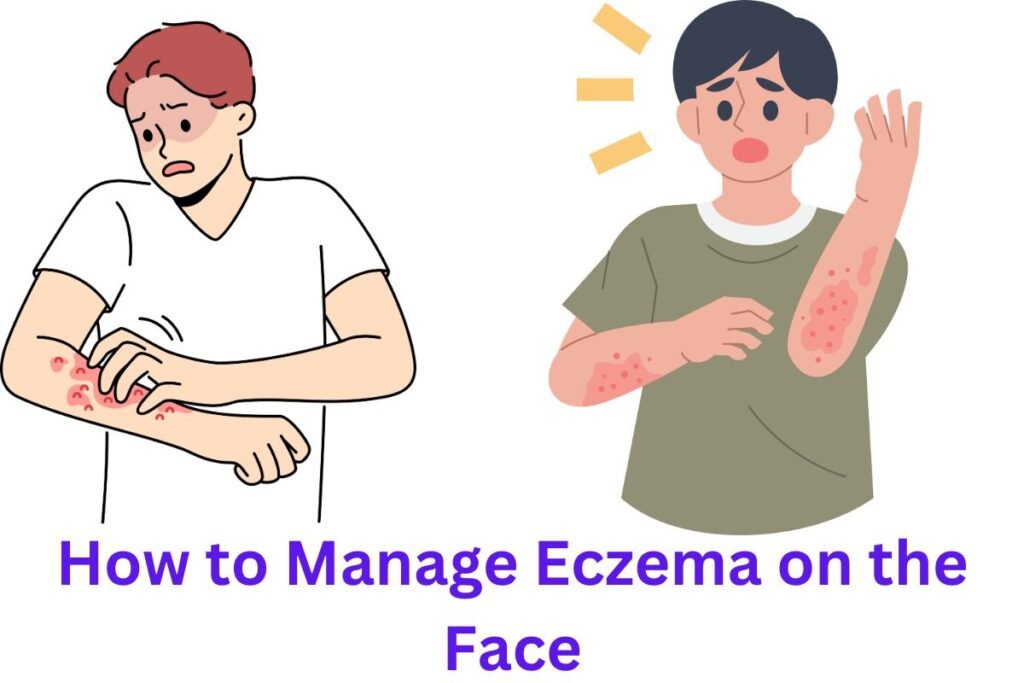Eczema, also known as atopic dermatitis, is a common skin condition characterized by red, itchy, and inflamed patches of skin. When it affects the face, it can be particularly distressing due to its visibility. Fortunately, with the right care and management strategies, the symptoms of facial eczema can be effectively controlled. This guide offers tips on how to manage eczema on the face, including identifying triggers, adopting skincare routines, and using appropriate treatments.
1. Identify and Avoid Triggers
One of the first steps in managing facial eczema is identifying and avoiding triggers that can cause flare-ups. Common triggers include:
- Allergens: Pollen, dust mites, pet dander, and certain foods can trigger eczema symptoms.
- Irritants: Harsh soaps, detergents, fragrances, and even some skincare products can irritate the skin and cause flare-ups.
- Stress: Emotional stress can exacerbate eczema, leading to increased inflammation and itchiness.
- Environmental Factors: Changes in temperature, humidity, and exposure to wind or sunlight can irritate sensitive skin.
Keeping a diary to track activities, diet, and exposure to potential triggers can help identify specific causes of flare-ups. Once identified, try to minimize contact with these triggers to reduce the likelihood of an eczema outbreak.
2. Gentle Skincare Routine
Adopting a gentle skincare routine is crucial for managing eczema on the face. Here are some tips to consider:
- Cleanse Gently: Use a mild, fragrance-free cleanser to wash your face. Avoid hot water, which can strip the skin of its natural oils, making it worse. Opt for lukewarm water instead.
- Moisturize Regularly: Moisturizing is key to keeping eczema-prone skin hydrated and preventing dryness. Choose a thick, emollient moisturizer that’s free from fragrances and alcohol. Apply it immediately after cleansing to lock in moisture.
- Avoid Over-Exfoliating: Exfoliating can be harsh on sensitive skin and may aggravate eczema. If you choose to exfoliate, use a gentle product and limit it to once a week.
- Sun Protection: Use a sunscreen that is suitable for sensitive skin. Look for mineral-based sunscreens containing zinc oxide or titanium dioxide, as they are less likely to irritate the skin.
3. Use Medications as Prescribed for Eczema
In some cases, over-the-counter skincare products may not be sufficient to manage facial . Topical medications prescribed by a dermatologist can help reduce inflammation and control symptoms. These may include:
- Topical Corticosteroids: These anti-inflammatory creams and ointments can help reduce redness and itching. They should be used as directed by a healthcare professional to avoid side effects.
- Calcineurin Inhibitors: Non-steroidal medications, such as tacrolimus or pimecrolimus, can be effective for managing eczema, particularly in sensitive areas like the face.
- Antihistamines: Oral antihistamines can help reduce itching, especially if it’s severe or affects sleep.
It’s important to follow the prescribed treatment plan and not overuse medications, as this can lead to side effects or reduced effectiveness.
4. Lifestyle Adjustments

Managing facial eczema also involves making certain lifestyle adjustments to support overall skin health:
- Stay Hydrated: Drink plenty of water to keep your skin hydrated from the inside out.
- Healthy Diet: A diet rich in anti-inflammatory foods, such as fruits, vegetables, and omega-3 fatty acids, can help reduce inflammation and support skin health.
- Manage Stress: Practice stress-reducing activities such as yoga, meditation, or deep breathing exercises. Reducing stress can help prevent flare-ups.
- Avoid Scratching: Scratching can worsen eczema and lead to skin infections. Keep nails short, wear gloves at night if necessary, and use anti-itch creams to manage discomfort.
5. When to See a Dermatologist
If over-the-counter treatments and lifestyle adjustments don’t seem to control facial eczema, it may be time to see a dermatologist. They can provide a tailored treatment plan, prescribe stronger medications if necessary, and offer advice on managing eczema effectively.
Additionally, if eczema is accompanied by severe symptoms such as oozing, crusting, or signs of infection
Conclusion
Facial eczema can be challenging to manage due to the sensitivity of the skin and the visibility of the symptoms. However, by identifying triggers, adopting a gentle skincare routine, using prescribed medications, making lifestyle adjustments, and consulting a healthcare professional when necessary, you can effectively manage eczema and minimize its impact on your daily life. Remember, consistency is key, and with the right approach, you can keep eczema under control and enjoy healthier, more comfortable skin.

